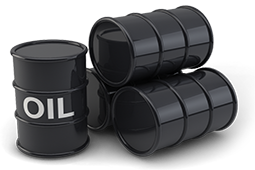
Haftar power play clouds outlook for Libyan oil revival

Libyan National Army (LNA) leader Khalifa Haftar, who has been waging an offensive for a year to wrest control of Tripoli from the UN-backed Government of National Accord (GNA), this week said he has a "people's mandate" to govern. Haftar said that the UN-brokered Libyan Political Agreement (LPA) of 2015 — which established the GNA — was over.
In response the GNA accused Haftar of a coup, and foreign governments and the UN rallied to defend the LPA. The UN's head of mission in Libya Stephanie Williams said that "the LPA and institutions emanating from it remain the sole internationally recognised framework of governance in Libya."
The US ambassador to Libya Richard Norland endorsed the UN position, and the French foreign ministry said any solution to the Libyan conflict "can only take place under the aegis of the UN, and not through unilateral decisions."
EU high representative Josep Borrell's spokesman said unilateral solutions "will never provide sustainable solutions for the country", and said that the LPA "remains the viable framework for political solutions in Libya until amendments are found, or replacements are found."
Even Russia, which has supported the LNA alongside Egypt and the UAE, disapproved of Haftar's statement, although foreign minister Sergei Lavrov also rejected GNA leader Fayez al-Sarraj's decision not to communicate with Haftar.
Nearly all of Libya's onshore oil infrastructure was at a halt by early February, under LNA instructions. State-owned NOC head Mustafa Sanalla on 4 March said he was optimistic about the prospect of a near-future recovery, but none has been forthcoming.
Argus estimates Libyan production averaged 90,000 b/d in March, compared with 1.15mn b/d in the fourth quarter of last year. NOC pegged production at 80,510 b/d on 13 April, and said losses since the first shutdowns in mid-January total more than $4bn. The country exported just 58,000 b/d of crude in March, compared with 1.035mn b/d in the October-December quarter, according to Argus tracking.
International companies operating in Libya have highlighted the disruption caused to their businesses from the situation in Libya. Austrian OMV said its output fell partly because of this, and Italy's integrated Eni lowered its 2020 production outlook, partly for the same reason.
If Haftar is successful in his move the LNA could try to export crude, although it is unlikely that it will find buyers in the Mediterranean. The UN's support for NOC meant buyers refused to deal with Benghazi-based rival NOC East when Haftar sought to transfer it control of Libyan oil assets in the summer of 2018. NOC East made four attempts to illicitly ship Libyan crude last year, according to a UN panel.
Any Libyan production revival could also be encumbered by the Covid-19 pandemic. Libya reported its first case in late March. The effects of the pandemic have been felt in neighbouring Algeria, where president Abdelmadjid Tebboune instructed to cut public spending by 30pc and to halve state-owned Sonatrach's operating and capital expenditure to $7bn this year.
By Ruxandra Iordache


Trump weighs using $2 billion in CHIPS Act funding for critical minerals

Codelco cuts 2025 copper forecast after El Teniente mine collapse

Electra converts debt, launches $30M raise to jumpstart stalled cobalt refinery

Barrick’s Reko Diq in line for $410M ADB backing

Abcourt readies Sleeping Giant mill to pour first gold since 2014

Nevada army depot to serve as base for first US strategic minerals stockpile

SQM boosts lithium supply plans as prices flick higher

Viridis unveils 200Mt initial reserve for Brazil rare earth project

Tailings could meet much of US critical mineral demand – study

Kyrgyzstan kicks off underground gold mining at Kumtor

Kyrgyzstan kicks off underground gold mining at Kumtor

KoBold Metals granted lithium exploration rights in Congo

Freeport Indonesia to wrap up Gresik plant repairs by early September

Energy Fuels soars on Vulcan Elements partnership

Northern Dynasty sticks to proposal in battle to lift Pebble mine veto

Giustra-backed mining firm teams up with informal miners in Colombia

Critical Metals signs agreement to supply rare earth to US government-funded facility

China extends rare earth controls to imported material

Galan Lithium proceeds with $13M financing for Argentina project

Kyrgyzstan kicks off underground gold mining at Kumtor

Freeport Indonesia to wrap up Gresik plant repairs by early September

Energy Fuels soars on Vulcan Elements partnership

Northern Dynasty sticks to proposal in battle to lift Pebble mine veto

Giustra-backed mining firm teams up with informal miners in Colombia

Critical Metals signs agreement to supply rare earth to US government-funded facility

China extends rare earth controls to imported material

Galan Lithium proceeds with $13M financing for Argentina project

Silver price touches $39 as market weighs rate cut outlook

















